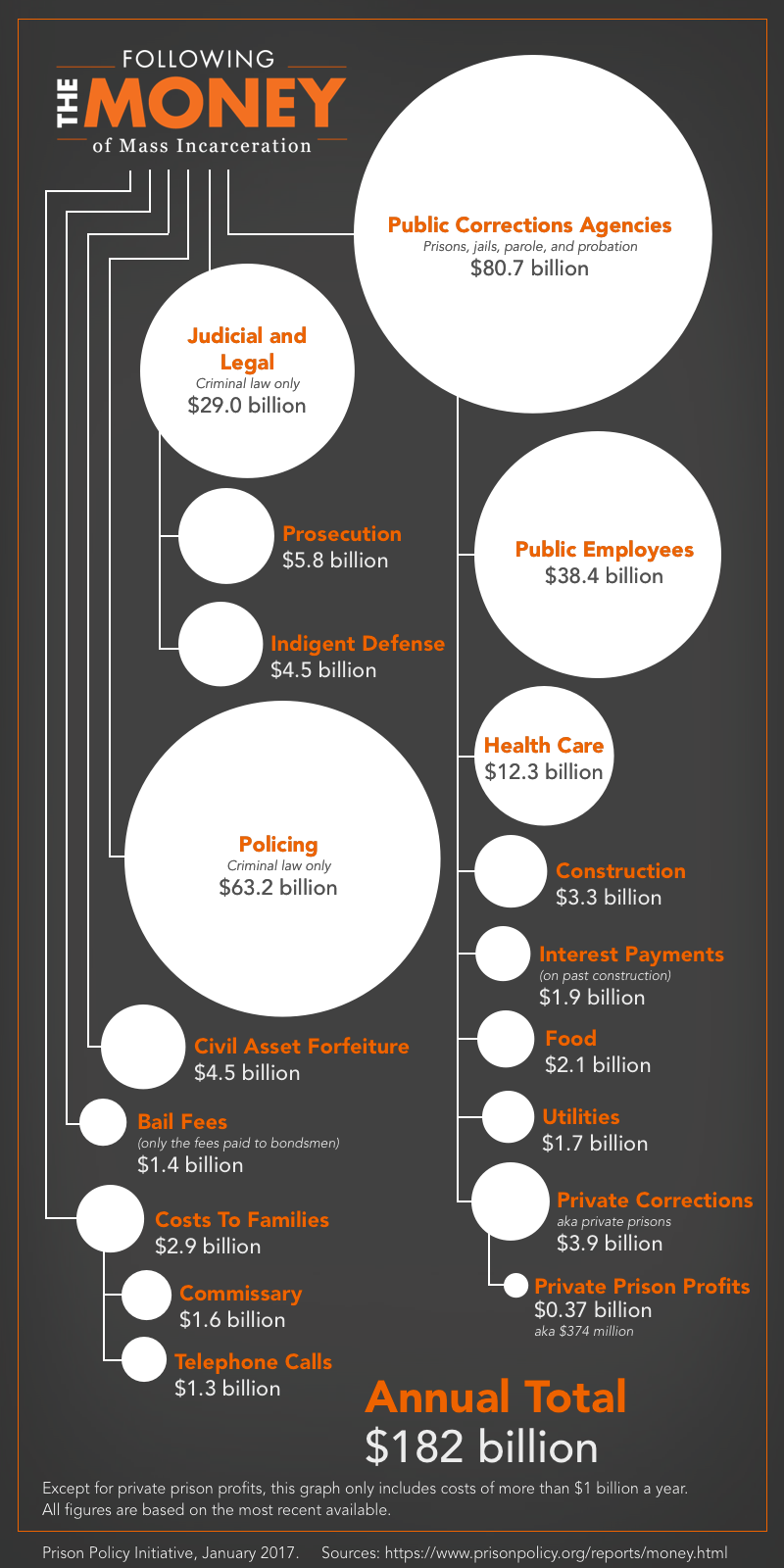New report reveals who pays for and who benefits from mass incarceration
In a first-of-its-kind report, the Prison Policy Initiative aggregates economic data to offer a big picture view of who pays for and who benefits from mass incarceration.
January 25, 2017
In a first-of-its-kind report, the Prison Policy Initiative aggregates economic data to offer a big picture view of who pays for and who benefits from mass incarceration.
The report, Following the Money of Mass Incarceration, and infographic are a first step toward better understanding who benefits from mass incarceration and who might be resistant to reform.
In the report, the Prison Policy Initiative:
- provides the significant costs of our globally unprecedented system of mass incarceration and over-criminalization,
- gives the relative importance of the various parts,
- highlights some of the under-discussed yet costly parts of the system, and then
- shares all of its sources so that journalists and advocates can build upon its work.
Following the Money of Mass Incarceration establishes that:
- Almost half of the money spent on running the correctional system goes to paying staff. This group is an influential lobby that sometimes prevents reform and whose influence is often protected even when prison populations drop.
- Private companies that supply goods to the prison commissary or provide telephone service for correctional facilities bring in almost as much money ($2.9 billion) as governments pay private companies ($3.9 billion) to operate private prisons.
- Commissary vendors that sell goods to incarcerated people — who rely largely on money sent by loved ones — is itself a large industry that brings in $1.6 billion a year.
“Following the Money of Mass Incarceration finds that mass incarceration and over-criminalization are deeply embedded in our economy,” said report co-author and Prison Policy Initiative Executive Director Peter Wagner. “Changing our nation’s criminal justice priorities is going to require challenging a lot of entrenched but often hidden interests.”
The report is available at: https://www.prisonpolicy.org/reports/money.html.




